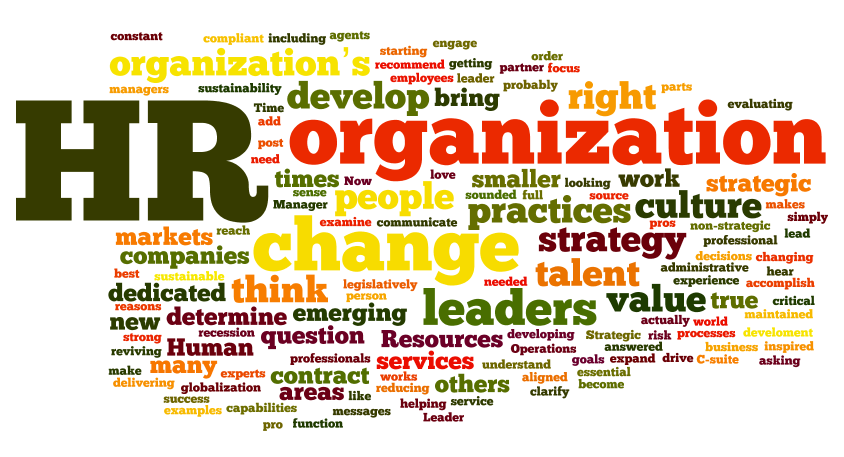 Last week I came across an article by Williams Recognition about the 5 traits of a Human Resources Professional. The traits they listed were: Commitment to company and employee; superior organizational skills; ability to multitask; impartiality; and continuous improvement. To me, this seems really 1980s, and helps to prolong the unfortunate stereotype of HR as administrative and subservient. While these traits may be important within the HR function corporately, there are some big gaps which include things I think are much more important to business today. So here’s my list of 5 traits of the next-generation HR Pro.
Last week I came across an article by Williams Recognition about the 5 traits of a Human Resources Professional. The traits they listed were: Commitment to company and employee; superior organizational skills; ability to multitask; impartiality; and continuous improvement. To me, this seems really 1980s, and helps to prolong the unfortunate stereotype of HR as administrative and subservient. While these traits may be important within the HR function corporately, there are some big gaps which include things I think are much more important to business today. So here’s my list of 5 traits of the next-generation HR Pro.
1. Business Acumen
If you don’t understand the business, you’re not going to be able to develop people practices that impact the business positively. It’s critical for HR pros to know how your business works – how you make money, who your customers are, industry best practices. HR pros have to analyze this information to determine where the talent gaps are, how they can be filled, and influence their partners in finance, operations, marketing, etc to implement and execute people practices that drive business.
2. Change Leadership
In today’s world, the only constant is change, and the biggest problem with change initiatives is the people piece. HR leaders must know how and be ready to create catalytic change, and how to engage people’s hearts and minds in the change in order to execute and sustain it.
3. Innovation
HR professionals (and professionals across all functions, in my mind) need to practice innovation in order to build great culture and achieve great results. This means keeping up to date on research and technology, thinking creatively about problems, not always looking to “best practices” but developing your own. Right now, for example, social media is transforming business, and HR must embrace it and use it innovatively in the war for great talent and developing people.
4. Strategic Thinking
HR leaders must be able to think strategically and holistically about their programs. They must be able to visualize future possibilities, and to see how their actions and people practices affect the organization. In many ways, this key trait is contradictory to some of the traits that Williams identified, because it’s about getting your head out of the day-to-day administrative “to-do”s and into thinking broadly about the business.
5. Leadership Coaching
In my experience, this has been critical, especially the more senior your level in HR. As an HR professional, you are often faced with situations in which leaders are unsure what to do, have made mistakes, or may even be engaging in unethical behaviour. The ability to coach leaders, even those more senior than myself, has been essential to my success. It’s not always easy to give difficult feedback or to help leaders realize their mistakes, but I have found that when I coach from a place of genuinely trying to prevent disaster and to improve business and people, my coaching has been well-received.
I think that as HR leaders enable leaders to engage diverse people and generations, embrace globalization and technology, and develop talent for future needs, these five skills are becoming far more important than the more administrative and generic skills like organizational ability and multi-tasking.
What do you think? What are the core traits that HR leaders must have in today’s business world?
If you need help with developing any of these traits in your HR team, or want to discuss the benefits of next-gen HR, contact me!
